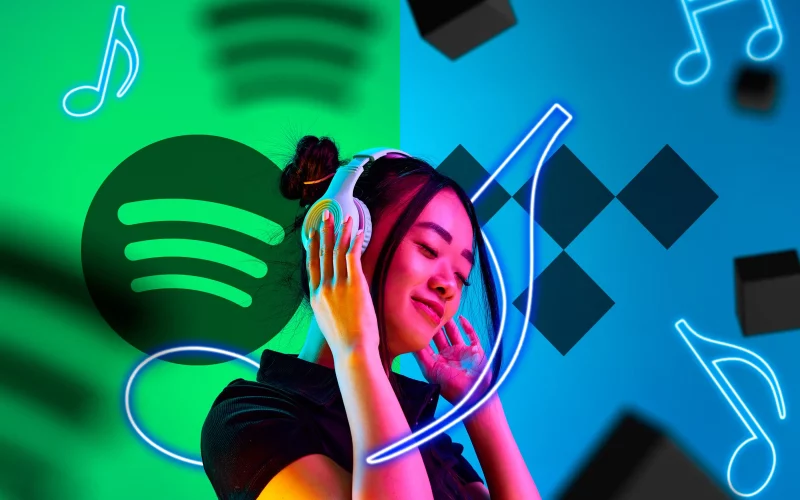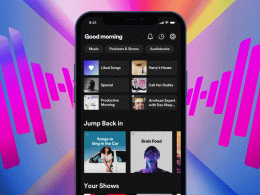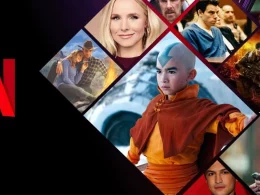Introduction
The music industry is evolving faster than ever, and artists now have more ways than ever to share their music with the world. Thanks to digital platforms, musicians can easily distribute their songs, grow their fan base, and connect with listeners. But with so many options available, how do you choose the right platform to unlock your potential and achieve success?
In this article, we’ll explore the 10 best music platforms that can help artists succeed in the modern music industry. From streaming services to social platforms, we’ll break down the key features and benefits of each to guide you in making the best choice for your music career.
The Growth of Music Streaming Services
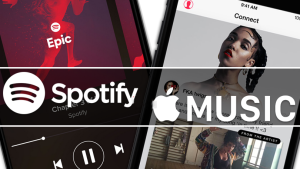
Music streaming services have become the go-to option for listening to music. In the past, people had to buy CDs or download songs, but now they can instantly stream millions of tracks with just a few clicks. This shift has made music more accessible to listeners worldwide. The popularity of services like Spotify and Apple Music continues to grow as they offer a huge variety of music, podcasts, and personalized playlists. This change in how we consume music has made it easier for listeners to find what they love and for artists to reach new audiences.
The Role of Music Platforms in the Industry
Music platforms play a central role in the modern music industry. They make it easier for artists to reach fans directly, without needing a record label. These platforms help new artists get discovered and provide established artists with ways to stay connected to their audience. Music platforms also support music discovery by recommending songs and artists to users, helping fans find new music based on their tastes. Overall, they help shape how music is consumed today.
How Music Platforms Help Independent Artists
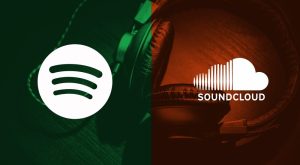
For independent artists, music platforms are a game-changer. Before digital platforms, it was tough for smaller artists to get their music out to a large audience without a record label. Now, artists can upload their music directly to platforms like SoundCloud, Bandcamp, and Spotify, and share it with listeners around the world. These platforms also give artists the tools to track how well their music is doing, helping them understand which songs are popular and which audiences they’re reaching.
Top 10 Best Music Platforms for Artists
1. Spotify: The Giant of Streaming
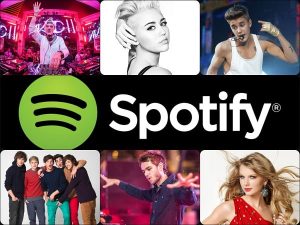
Spotify is one of the largest music streaming platforms in the world, with millions of active users. This platform provides artists with an incredible opportunity to get their music heard by a massive audience. With its user-friendly interface, it’s easy for fans to find and follow their favorite artists, which translates into more plays for your tracks.
Key Features:
- Huge user base with millions of listeners.
- Playlist placements can lead to significant exposure.
- Tools like Spotify for Artists allow you to track performance, demographics, and more.
- Revenue is generated through streams and ads.
2. Apple Music: Premium and Profitable
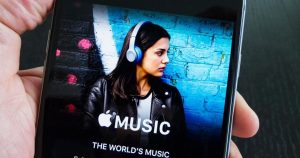
Apple Music offers a premium experience for both listeners and artists. It’s known for its high-quality sound and exclusive content, which can help artists get noticed. As one of the largest music platforms, it provides a significant revenue stream for artists.
Key Features:
- High-quality audio and exclusive releases.
- Features like Beats 1 and Apple Music Radio allow you to showcase your work.
- Apple Music for Artists offers valuable insights into audience engagement.
- Revenue comes from subscriptions and paid content.
3. YouTube: A Visual and Musical Powerhouse
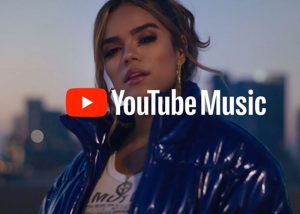
YouTube is not just a platform for videos; it’s also one of the largest sources for music discovery. Artists can upload their tracks and music videos, gain followers, and monetize their content through ads and memberships. With YouTube’s vast reach, it’s a great platform for visibility.
Key Features:
- Massive global audience and music discovery.
- Monetization through YouTube’s Partner Program (ads).
- A platform for music videos, live streams, and behind-the-scenes content.
- Integration with Google’s ecosystem for better promotion.
4. SoundCloud: For Independent Artists
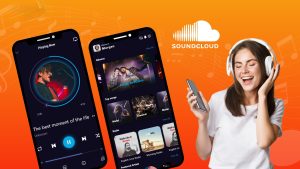
SoundCloud has long been a favorite for independent artists and creators. Its easy-to-use interface and free access to listeners make it a go-to platform for emerging musicians. SoundCloud allows artists to upload music directly and receive feedback from fans.
Key Features:
- Free and paid tiers for both listeners and artists.
- Ability to upload full tracks and sets.
- Direct fan interaction through comments and reposts.
- Monetization through SoundCloud Premier and advertising.
5. Bandcamp: Direct-to-Fan Sales and Support

Bandcamp is a platform built around supporting artists directly. It allows musicians to sell their music, merchandise, and even live shows directly to fans, keeping a larger share of the profits. For artists looking to build a more personal connection with their audience, Bandcamp is an ideal platform.
Key Features:
- Direct-to-fan sales with a revenue-sharing model.
- Ability to sell music, merchandise, and tickets for live shows.
- Fans can pay what they want for music, which encourages support.
- Customizable artist pages and community engagement features.
6. Tidal: High-Quality Streaming and Artist Support
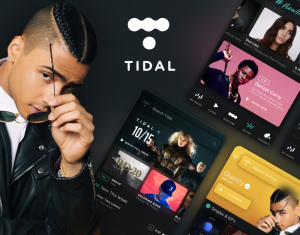
Tidal is known for its high-definition audio and artist-first approach. The platform’s commitment to paying artists a larger share of royalties has made it a favorite among music professionals. For musicians who prioritize sound quality and fair compensation, Tidal is an excellent choice.
Key Features:
- High-definition audio for audiophiles.
- Focus on supporting artists with better revenue models.
- Exclusive content and early releases.
- Tidal for Artists provides insights into listener behavior.
7. Deezer: Global Reach with Smart Features
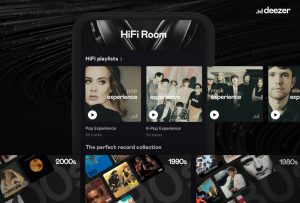
Deezer offers a wide range of music genres, which gives artists the opportunity to reach international audiences. Its algorithm-based playlists and integrations with other apps provide more opportunities for music discovery.
Key Features:
- Global reach with over 180 countries available.
- Smart features like Flow, which recommends personalized music.
- Deezer for Artists offers detailed analytics.
- Revenue comes from subscriptions and advertising.
8. Instagram: A Social Media Essential for Music Promotion

Instagram is the perfect place for artists to engage with their fans visually. While it’s not primarily a music platform, its integration with music streaming services and ability to showcase music videos, performances, and behind-the-scenes content makes it an essential tool for promotion.
Key Features:
- Music sharing and video features.
- Engaging with fans through stories, posts, and reels.
- Collaborations with other creators to reach new audiences.
- Direct messaging for fan interactions and promotions.
9. TikTok: Viral Music Discovery
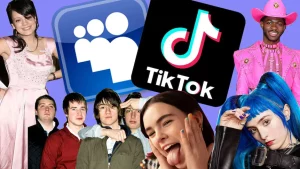
TikTok has exploded in popularity, with millions of users creating and sharing short videos. Many songs have gained viral status due to TikTok trends, and artists can take advantage of this by sharing their music in creative ways. If you’re looking to get noticed quickly, TikTok is a must.
Key Features:
- Short-form video platform with viral trends.
- Music integration for creating content around songs.
- Ability to interact with fans through comments and collaborations.
- TikTok for Artists offers insights into trends and engagement.
10. Amazon Music: A Growing Platform with Big Potential
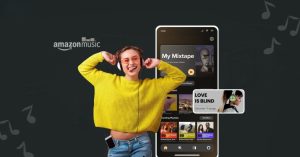
Amazon Music may not be as large as Spotify or Apple Music, but it’s quickly becoming a major player. Its integration with Amazon Prime and Alexa provides a built-in audience, and it offers a competitive revenue share for artists. Amazon Music is a platform to watch in the coming years.
Key Features:
- Integration with Alexa for hands-free music listening.
- Amazon Music for Artists provides analytics and promotional tools.
- Competitive royalty payouts for artists.
- Direct promotion via Amazon’s platform and Prime Music service.
Monetizing Music Through Platforms
One of the biggest reasons artists use music platforms is to make money. Many platforms allow artists to earn revenue through streams, ads, and even merchandise sales. For example, YouTube lets artists make money from ads on their videos, while Spotify pays artists based on how many times their songs are streamed. While the payouts may not always be huge, these platforms still offer a steady way for musicians to earn income and grow their careers, especially when combined with other revenue streams like live performances.
Challenges of Music Platforms for Artists
While music platforms offer many opportunities, there are challenges as well. One major issue is the low payout rates for streams. Many artists feel they do not earn enough money from platforms like Spotify or Apple Music. Another challenge is the competition millions of tracks are uploaded every day, making it hard for an artist to stand out. Additionally, some platforms have complex algorithms, which can make it difficult for new or independent artists to get featured on popular playlists or recommended to listeners.
The Future of Music Platforms
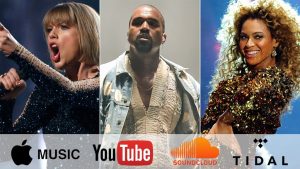
The future of music platforms looks bright. As technology continues to improve, platforms will likely become even more user-friendly and offer new features for both artists and listeners. For instance, the rise of AI could lead to better music recommendations and more personalized fan experiences. Platforms may also offer more ways for artists to earn money, such as through virtual concerts or enhanced social media integration. With new innovations on the horizon, music platforms will continue to be a major part of the music industry’s evolution.
Comparative Analysis of Music Platforms for Artists
Here’s a comparative table showing key features of the top music platforms for artists:
| Platform | User Base | Revenue Model | Key Features | Best For |
|---|---|---|---|---|
| Spotify | 500M+ monthly | Streams/Ads | Playlists, Spotify for Artists | Large audience, easy promotion |
| Apple Music | 100M+ subscribers | Subscriptions/Ads | High-quality audio, exclusive content | Premium experience, high revenue |
| YouTube | 2B+ monthly | Ads/Subscription | Music videos, live streams | Video content and music discovery |
| SoundCloud | 175M+ monthly | Streams/Ads | Easy uploads, direct feedback | Independent artists, community vibe |
| Bandcamp | 7M+ users | Direct Sales | Merchandise, pay-what-you-want model | Direct fan support, indie artists |
| Tidal | 80M+ subscribers | Subscriptions/Ads | HD audio, artist royalties | Audiophiles, artist compensation |
| Deezer | 16M+ subscribers | Streams/Ads | Personalized recommendations | Global reach, music discovery |
| 2B+ users | Ads/Sponsorship | Visual content, stories, reels | Social media promotion, fan engagement | |
| TikTok | 1B+ users | Ads/Sponsorship | Short-form videos, viral trends | Viral music promotion |
| Amazon Music | 55M+ subscribers | Streams/Ads | Alexa integration, Prime Music | Growing platform, built-in audience |
Conclusion
Selecting the right music platform can significantly impact an artist’s success. Whether you’re looking to grow your audience, monetize your music, or create unique content, there’s a platform that suits your needs. If you’re aiming for large-scale reach, platforms like Spotify and Apple Music are great choices. For artists focused on direct fan engagement and independent growth, SoundCloud and Bandcamp may be more suitable.
Ultimately, combining multiple platforms and tailoring your content strategy to each can unlock the most success. Remember to keep track of your performance, engage with your audience, and adjust your strategy as you grow your career.






